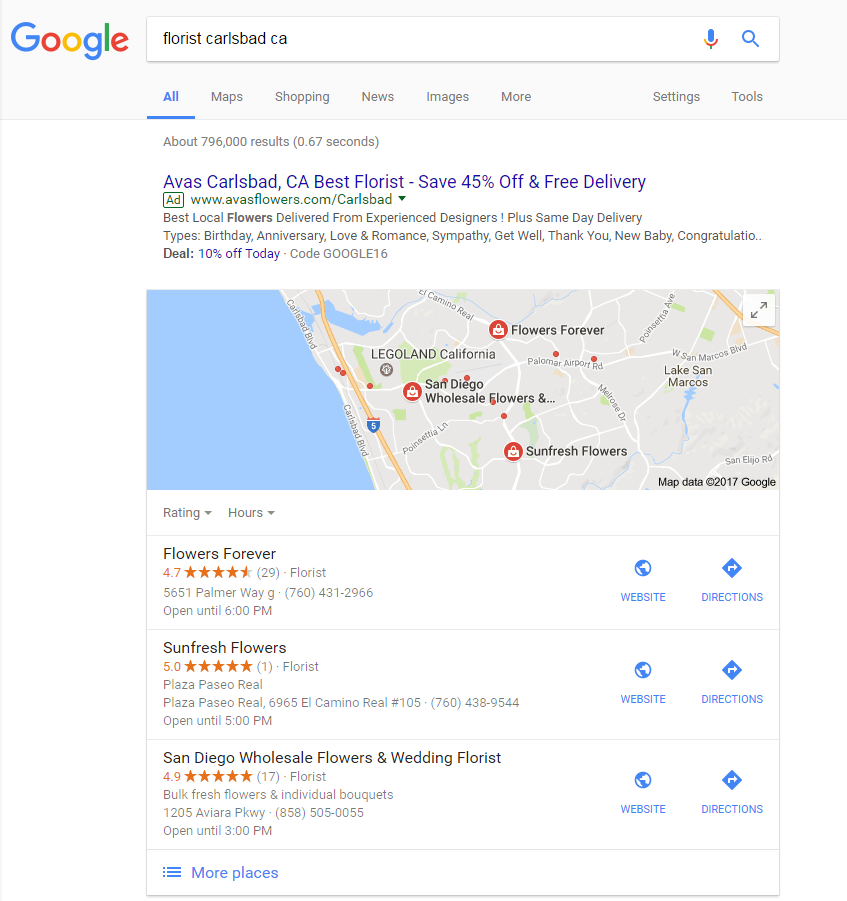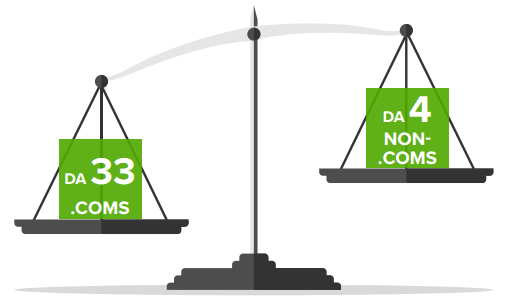A new case study done by the Domain Name Association (DNA) shows that .BANK domains and .LAW domains pose an advantage when it comes to SEO performance and that these keyword-rich New gTLDs actually boost domain authority in Google search results. To get a better understanding of the findings of the study, know that Google considers two major features when populating search results: Relevance and Authority.

What is Relevance?
Relevance is the intent of the searcher. Someone searching “Where to buy a diamond ring” for example is going to populate different results than someone searching “How to clean a diamond ring”. The intent of the first user is to purchase a product so Google will either display e-commerce stores that sell diamond rings or brick-and-mortar jewelers in the area. The second user’s goal is information discovery so the search results will look completely different.
Depending on your search, Google search results will format differently. Profitable searches will most likely always have paid ads displayed at the top, while informative searches might show all organic results. Google’s Knowledge Graph is another feature implemented to enhance search engine’s search results with information gathered from a wide variety of sources. The Knowledge Graph can appear in a few forms including quick answer, carousel, and local 3-pack for example. Ranking in these positions above the fold and for top keywords is a great goal for any brand to strive for.




What is Authority?
Authority is the value Google gives a web page. This was traditionally scored via backlinks and social media buzz so far a brand with a new online presence, ranking on the top pages of Google was seen to be fairly impossible. However new data via the DNA case study show that New Domains were outperforming legacy domain extensions such as .COM domains and .ORG domains for brands lacking in domain authority.
What this means is that new TLD websites without a lot of inbound links, social media presence, etc. essentially with less domain authority, were performing well in organic ranking due to having keywords in the URL.
The case study found that .COMs had to fight much harder for a presence on the first page and ranking for keywords, requiring an average domain authority of 33 for visibility, while new gTLDs needed a much lower average domain authority of only 4 to rank, because of other factors such as having keywords in the domain name and domain ending.

A case for choosing an exciting New Domain Ending
There is common misbelief among internet users that registering a new domain name ending for your brand is risky. Hopefully, this DNA case study will build some trust in the new domain endings and reassure brands that there is an equal footing online for .COM domain names and new TLDs. The new gTLDs even present an advantage for certain keywords or localization tactics.
Our time is precious and we have become a generation of skimmers. We like bullet point notes so we can skim them, we skim over social media posts if they are long, you probably skimmed through this article for the data (I see you), and we skim search results online to decide which website we are going to spend time visiting. It’s no doubt that someone is more likely to click on a link that has the keyword they were searching for in the URL and as we well know every click on organic search results means dollars saved in paid marketing- and that’s a big win! Google may not confirm or deny the benefits of keywords in the new TLDs for SEO but we are excited by the successful use case studies we have seen thus far!

We are renowned for our global reach and capabilities—get the services and support you need to make meaningful decisions to ensure your brand is always protected.

Monitoring & Enforcement Services
Our monitoring solutions and dedicated analysts work around the clock for you. When a problem is found, we have solutions available to take care of it in-house.

Our Security & Technology Partners
As a security-focused domain name and web technology provider, we have a wide range of complementary services and best-in-class partners available to you when you need them.